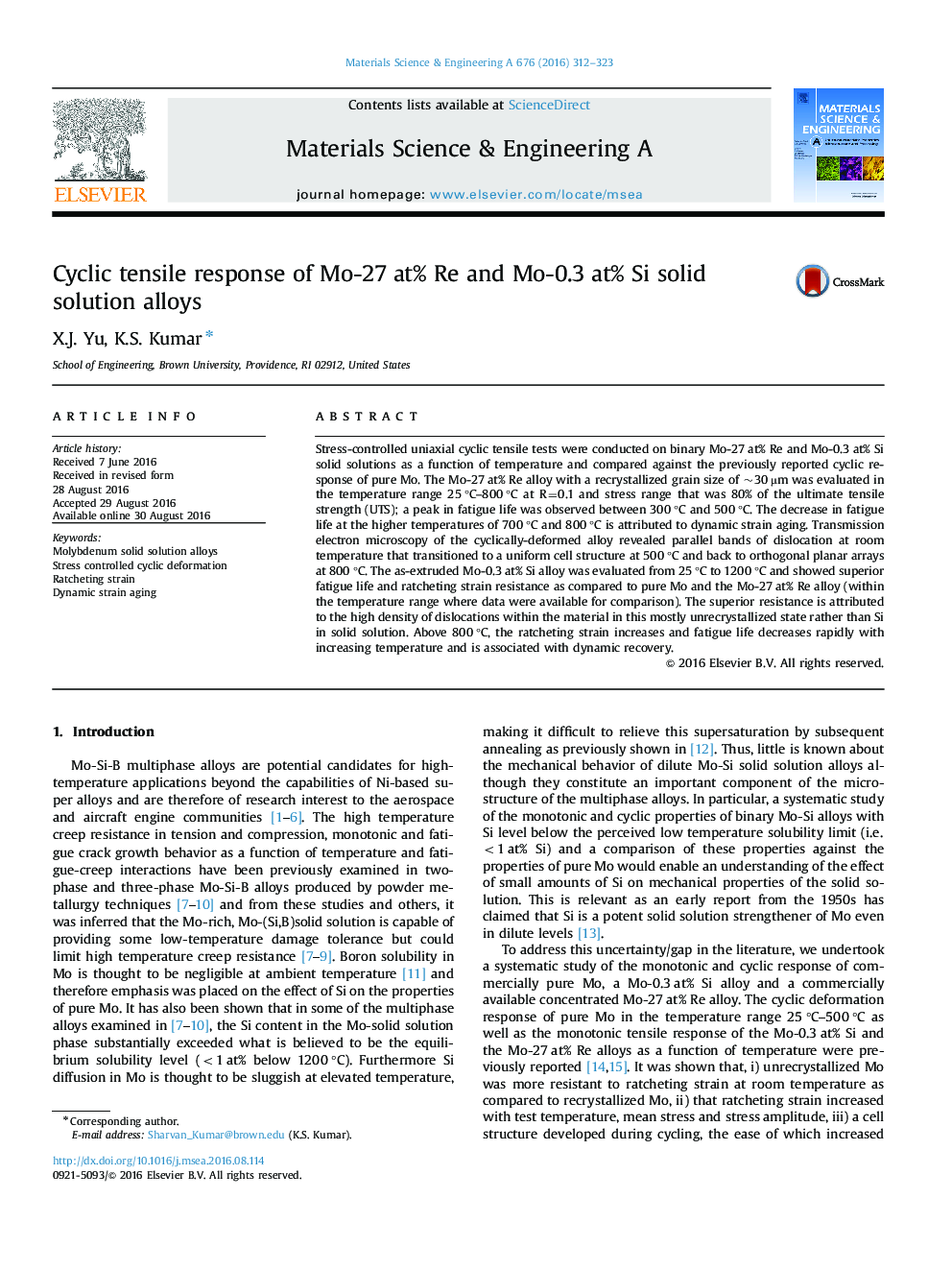| Article ID | Journal | Published Year | Pages | File Type |
|---|---|---|---|---|
| 7974749 | Materials Science and Engineering: A | 2016 | 12 Pages |
Abstract
Stress-controlled uniaxial cyclic tensile tests were conducted on binary Mo-27 at% Re and Mo-0.3 at% Si solid solutions as a function of temperature and compared against the previously reported cyclic response of pure Mo. The Mo-27 at% Re alloy with a recrystallized grain size of ~30 µm was evaluated in the temperature range 25 °C-800 °C at R=0.1 and stress range that was 80% of the ultimate tensile strength (UTS); a peak in fatigue life was observed between 300 °C and 500 °C. The decrease in fatigue life at the higher temperatures of 700 °C and 800 °C is attributed to dynamic strain aging. Transmission electron microscopy of the cyclically-deformed alloy revealed parallel bands of dislocation at room temperature that transitioned to a uniform cell structure at 500 °C and back to orthogonal planar arrays at 800 °C. The as-extruded Mo-0.3 at% Si alloy was evaluated from 25 °C to 1200 °C and showed superior fatigue life and ratcheting strain resistance as compared to pure Mo and the Mo-27 at% Re alloy (within the temperature range where data were available for comparison). The superior resistance is attributed to the high density of dislocations within the material in this mostly unrecrystallized state rather than Si in solid solution. Above 800 °C, the ratcheting strain increases and fatigue life decreases rapidly with increasing temperature and is associated with dynamic recovery.
Related Topics
Physical Sciences and Engineering
Materials Science
Materials Science (General)
Authors
X.J. Yu, K.S. Kumar,
